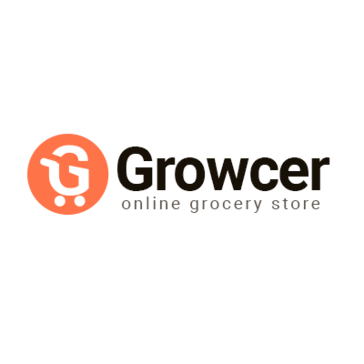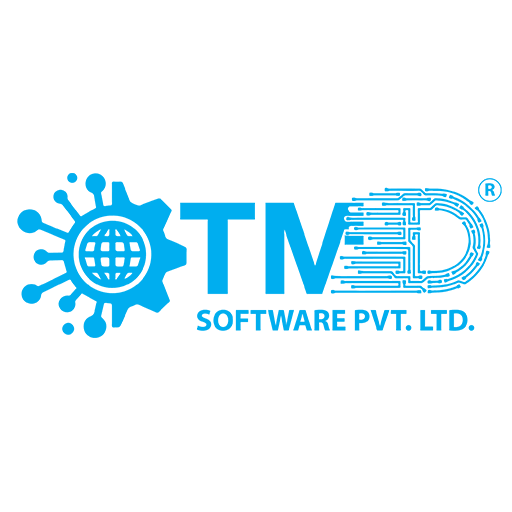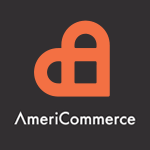What Is Ecommerce Software?
Ecommerce software is a collection of tools and platforms designed to ease online transactions, allowing businesses to sell items or services via the internet. This software offers features like online storefronts, shopping carts, payment gateways, and inventory management systems, making it an excellent foundation for starting and running an online store.
One of the primary benefits of ecommerce software is its ability to streamline the sales process, allowing firms to reach a larger audience and improve revenues. Furthermore, ecommerce software enables customisation of the purchasing experience, such as product recommendations and targeted marketing, which can lead to increased conversions.
The program also has analytics and reporting features, which allow organizations to track revenues, consumer behavior, and other vital indicators in order to make informed decisions and enhance their strategy. When selecting an ecommerce software, it is critical to evaluate pricing, ease of use, integration possibilities, and customer service.
Shopify, WooCommerce, Magento, and BigCommerce are among of the most popular solutions on the market, each with their own set of features and pricing plans to accommodate businesses of all kinds. Overall, ecommerce software is a must-have for every business wanting to build an online presence and increase sales. By providing a streamlined and user-friendly purchasing experience, businesses may succeed in the competitive world of online retail.
What Are The Recent Trends In Ecommerce Software?
The world of ecommerce is continually growing, and as a result, ecommerce software has advanced significantly in recent years. Buyers should be aware of some of the latest trends in ecommerce software, ranging from new functionality to technological developments.
1. Mobile Optimization: As more people use smartphones and tablets to shop online, ecommerce software must prioritize mobile optimization. This includes flexible design, simple navigation, and seamless checkout processes to ensure a user-friendly experience for mobile shoppers.
2. AI And Chatbots: Artificial intelligence and chatbots are popular technologies for ecommerce firms, allowing them to automate procedures, provide tailored recommendations, and provide customer care. These features can dramatically improve the entire client experience and increase sales.
3. Personalization: Today's consumers want tailored online buying experiences, and ecommerce software is adjusting to fulfill these expectations. Using data and algorithms, software may now deliver personalized product recommendations, information, and promotions based on a customer's browsing and purchase habits.
4. Multichannel Selling: To reach a larger audience, ecommerce software vendors are now providing interfaces with a variety of selling channels, including marketplaces and social media sites. This enables firms to increase their reach and sell across different platforms effortlessly.
5. Subscription And Membership Models: Subscription and membership models are being used by many ecommerce organizations to improve client retention and revenue forecasting. Ecommerce software has responded to this trend by providing capabilities that enable these models, such as recurring billing and automatic renewal management.
6. Integration With Third-Party Apps: Ecommerce software's integration with third-party apps and tools has made it more adaptable and customized. This enables organizations to add new features and functionalities as needed, such as email marketing, inventory management, and analytics.
7. Social Commerce: Social media platforms are being used not only to communicate with friends, but also to shop. As a result, ecommerce software is now including social commerce capabilities like buy buttons and shoppable posts, allowing businesses to sell directly through social media.
Benefits Of Using Ecommerce Software
Ecommerce software is a strong tool that enables businesses to offer products and services online. With the development of digital shopping, having an ecommerce presence is critical for businesses to remain competitive in the market. While you may know understand the necessity of ecommerce, let's look at the specific advantages of adopting ecommerce software for your business.
1. Global Reach: One of the most significant advantages of using ecommerce software is the opportunity to reach a worldwide audience. With traditional brick and mortar establishments, your consumer base is confined to the surrounding area. However, with an internet business, you can sell your products and services to clients all over the world, creating limitless prospects for growth.
2. Cost-Effective: Opening a physical store may be costly, from renting a facility to hiring employees and handling goods. Ecommerce software reduces many of these expenses, making it a more cost-effective option for enterprises. Additionally, automated functions like as inventory management and order processing can help you save money on labor costs.
3. 24-Hour Availability: With an online store, your business is open around the clock, allowing customers to shop whenever they want. This is especially useful for clients in other time zones, who can make purchases without worrying about store hours. This also translates to greater sales and revenue possibilities for your company.
4. Personalization: Ecommerce software has tools that enable firms to customize the shopping experience for customers. From suggested items based on previous purchases to targeted email campaigns, you can personalize your marketing efforts to each customer's interests, improving the likelihood of a purchase.
5. Integration With Several Platforms: Ecommerce software is easily integrated with social networking, email marketing, and analytics tools. This makes it easier for businesses to contact and engage with their target audience across many platforms, resulting in increased sales and conversions.
6. Improved Customer Service: Ecommerce software enables firms to deliver better customer service by including services like live chat, product reviews, and quick returns and exchanges. This promotes client trust and loyalty, resulting in repeat purchases and positive word-of-mouth referrals.
7. Data-Driven Insights: Ecommerce software enables firms to collect and analyze customer data, revealing important information about their purchasing habits and preferences. This information can be utilized to make informed decisions about product offerings, marketing strategies, and general business operations.
Important Factors To Consider While Purchasing Ecommerce Software?
When it comes to acquiring ecommerce software, there are numerous key elements to consider in order to make the best option for your company. Whether you're a small start-up or a well-established online business, the appropriate ecommerce software may help you streamline operations, increase sales, and improve the customer experience.
1. Scalability: One of the most important considerations when selecting ecommerce software is scalability. Your company will develop over time, and you will need a platform that can accommodate that growth without causing any disruptions. Look for software that has adaptable features and configurable alternatives to fit your evolving business requirements.
2. User-Friendly Interface: A user-friendly interface is critical for both you and your clients. Your ecommerce software should be simple to use and maintain, allowing you to change product information, track orders, and handle customer data with ease. At the same time, it should offer your clients a smooth and user-friendly experience, making it easier for them to browse and buy things.
3. Integration Capabilities: In today's digital landscape, having a reliable and integrated ecommerce platform is critical. Look for software that integrates with other apps and platforms, such as payment gateways, shipping services, and inventory management systems. This will help to streamline your operations and give a consistent experience for you and your consumers.
4. Mobile Responsiveness: With the growing popularity of mobile shopping, it is critical to select ecommerce software that is mobile friendly. This implies that your website will adapt to different screen sizes, giving clients a seamless purchasing experience on their mobile devices.
5. Security Measures: Every firm should prioritize protecting its customers' data. When selecting ecommerce software, make sure it includes strong security features like SSL encryption, fraud detection, and data backup and recovery to protect your customers' information.
6. Customer Support: No matter how simple a piece of software is to use, you may still run into technical issues or have queries. Look for ecommerce software vendors who give consistent customer assistance, whether by email, phone, or live chat. This ensures that you can get support when you need it.
7. Pricing: Finally, consider your budget when selecting ecommerce software. Look for platforms that have transparent pricing, no hidden fees, and no long-term contracts. It is also critical to examine the value that the software brings to your firm, rather than just the initial cost. When choosing ecommerce software for your business, keep these crucial considerations in mind to make an informed purchase. Remember to conduct thorough study and compare many solutions to choose the greatest fit for your individual requirements. A dependable and efficient ecommerce software can ultimately assist you in growing your organization and achieving your business objectives.a
What Are The Key Features To Look For In Ecommerce Software?
Ecommerce software has become an essential tool for businesses of all kinds trying to grow their online presence and boost sales. However, with so many options on the market, it might be difficult to select the best one for your organization. To make things easier for you, here are some crucial aspects to look for when choosing an ecommerce software:
1. User-friendly Interface: The first and most significant consideration is the software's usability. It should have an intuitive interface that is simple to use for both administrators and customers. A convoluted software can only cause confusion and frustration, reducing your sales.
2. Mobile Compatibility: Because mobile devices account for the vast majority of online transactions, your ecommerce software must be mobile-friendly. To provide your customers with a flawless purchasing experience, the software should be responsively designed and mobile-optimized.
3. Payment Options: Your ecommerce software should enable a variety of payment methods to meet your consumers' preferences. This could include credit/debit cards, PayPal, Stripe, and other well-known payment platforms. It should also include a secure payment system to safeguard important consumer data.
4. Inventory Management: A decent ecommerce software should include comprehensive inventory management features. It should enable you to quickly check and manage your inventory levels, set low stock alarms, and even automate reordering when necessary. This will allow you to avoid overselling and keep precise stock levels.
5. SEO Optimization: In order to reach a larger audience and boost your online presence, your ecommerce software should include SEO-friendly capabilities. This features custom URLs, meta tags, and the ability to add alt tags to images.
6. Customer Support: Choose an ecommerce platform that provides dependable customer service. This is critical for any organization, especially if you are experiencing technical difficulties or have queries regarding the software's functionality. A good customer support team will keep your firm running smoothly.
7. Integration Capabilities: Your ecommerce software should be able to work with other tools and platforms, including as accounting software, CRM, email marketing, and social media. This will help you optimize your business procedures and give your clients a more smooth buying experience.
8. Scalability: Your ecommerce software should be able to grow alongside your business. Look for software that supports scalability, such as the capacity to add new goods, customers, and features as your company grows. By taking these crucial aspects into account, you can make an informed decision about which ecommerce software is best for your business. Remember to conduct research and compare many possibilities before making a final decision to guarantee you select the best software for your business.
Why Do Businesses Need Ecommerce Software?
Ecommerce software is a valuable resource for businesses of all sizes and sectors. In today's digital age, having an online presence is no longer a luxury, but rather a requirement for businesses to remain competitive. Ecommerce software offers businesses a full solution for setting up, managing, and growing their online storefronts. Here are a few reasons why organizations use ecommerce software.
1. Easy Online Store Set-Up: Ecommerce software makes it easier to create an online store, allowing businesses to get started fast and easily. Businesses may personalize their online store with user-friendly templates and drag-and-drop tools that reflect their brand and product offerings.
2. Efficient Product And Inventory Management: Ecommerce software allows firms to manage product listings, prices, and inventory from a single location. This guarantees that product information is updated and displayed consistently across all sales channels.
3. Convenient Payment Processing: Ecommerce software interfaces with a variety of payment gateways, allowing businesses to take payments from clients online. This eliminates the need for manual payment processing and lowers the risk of errors.
4. Customer Management: Ecommerce software enables firms to track customer information, purchase history, and preferences, allowing them to give more tailored service. This contributes to client loyalty and satisfaction.
5. Flexible Shipping choices: Ecommerce software provides a variety of shipping choices and integrations with shipping companies, allowing businesses to conveniently manage and trace shipments. This simplifies the ordering procedure for clients and enables businesses to fulfill orders more effectively.
6. Marketing And Analytics: Ecommerce software includes marketing capabilities and integrates with prominent marketing platforms. This helps firms to promote their items to a larger audience. The program also gives vital data and statistics on customer behavior and sales patterns, allowing firms to make more educated decisions.
How Much Time Is Required To Implement Ecommerce Software?
The time necessary to integrate ecommerce software varies widely based on the product itself, the complexity of your business processes, and the level of customization required. In general, the implementation period can range from a few weeks to several months. First and foremost, buy ecommerce software that is appropriate for your company's objectives and ambitions.
This ensures a smoother implementation process and reduces the need for modification. If you choose a package that requires extensive customization, the implementation procedure may take longer. After you've chosen your ecommerce software, the next step is to create your website and online store. This often include selecting a template or theme, uploading product photographs and descriptions, creating payment and delivery methods, and adjusting taxes and other settings.
Depending on the intricacy of your products and services, this procedure might last anywhere from a few days to a few weeks. Integrating your new ecommerce software into your existing systems and procedures is another critical stage in the installation process. This can involve interfacing with your inventory management, CRM, and accounting systems.
The time it takes to complete this stage will be determined by the complexity of your systems and the level of integration required. Training your team on how to utilize the new ecommerce software is critical to a successful installation. This involves learning how to add products, handle orders, process payments, and fill orders. Depending on the size of your team and the complexity of your operations, this could take a few days to a few weeks.
Overall, implementing ecommerce software is a multi-step process that involves meticulous planning, testing, and training. It is critical to set aside enough time and resources for a complete installation to ensure a smooth transition to your new ecommerce platform. Working closely with the software vendor and seeking support and guidance throughout the process can also help to speed up the implementation and save time.
What Is The Level Of Customization Available In Ecommerce Software?
Ecommerce software enables businesses to develop and operate online stores, making it easier to offer their products and services to a global audience. One of the most important considerations when selecting ecommerce software is the level of flexibility provided. This refers to the ability to customize the appearance and functionality of your online store to meet your specific business requirements.
Most ecommerce software provides a variety of customization choices, ranging from basic templates to entirely unique designs. The level of customisation may also differ based on the type of software, with some catering to beginners and others oriented for sophisticated users. At its most basic, ecommerce software allows customers to customize the color scheme, typefaces, and layout of their online business.
This enables firms to design a branded and visually appealing storefront that matches their distinctive brand identity. However, for more advanced customization, some software provides access to the source code, allowing businesses to make considerable modifications to their online store's design and functionality. Aside from look, ecommerce software enables businesses to modify their product listings, categories, and checkout processes.
This is critical for providing a fluid and user-friendly buying experience for customers. To adapt to their individual demands, firms can add product variations such as size and color options, as well as multiple shipping and payment methods. Some ecommerce software also allows for additional customizations, such as integration with third-party apps and plugins, which can improve the functioning of your online store.
This enables businesses to add features like customer review sections, marketing tools, and inventory management systems to their online store, allowing them to further customize and improve the user experience.
Which Industries Can Benefit The Most From Ecommerce Software?
Ecommerce software is an invaluable resource for businesses of all sizes and sorts. Certain industries, however, may profit more from the implementation of ecommerce software than others. In this buyer's guide, we'll look at which industries can gain the most from ecommerce software, and why.
1. Retail Industry: First and foremost, the retail business is among the most likely to gain from ecommerce software. With the advent of internet shopping, people are increasingly resorting to online platforms to make purchases. Ecommerce software offers retailers a full platform for displaying their products, managing inventories, and processing transactions effectively. Ecommerce software also includes capabilities like consumer data analysis, marketing tools, and customized storefront designs, which can help shops expand their online business.
2. Fashion Industry: The fashion business is another one that can greatly benefit from ecommerce software. With ever-changing fashion trends and the rise of fast fashion, online shopping has become the preferred choice for fashion-conscious shoppers. Ecommerce software enables fashion companies to develop visually appealing online storefronts that showcase their products, provide extensive product descriptions and sizes, and ensure a smooth checkout experience. Furthermore, ecommerce software frequently includes capabilities like inventory management, client segmentation, and email marketing, allowing fashion enterprises to successfully respond to their customers' shifting wants.
3. Food & Beverage Industry: The food and beverage business is likewise seeing a substantial change toward e-commerce, particularly with the development in food delivery services. Ecommerce software can help restaurants, cafes, and other food and beverage businesses by automating the ordering and delivery processes. Ecommerce software allows businesses to offer online menus, collect online orders, and track deliveries, giving customers a more simple and efficient ordering experience. Ecommerce software can also help businesses reach a larger audience by providing online marketing tools and integrating with popular meal delivery systems.
4. Beauty And Personal Care Industry: Ecommerce software can also aid the beauty and personal care industry. With the growing popularity of online beauty influencers and bloggers, people are turning to online platforms to buy their favorite beauty and personal care items. Ecommerce software enables enterprises in this market to successfully present their products, including extensive product descriptions and unique images. Additionally, ecommerce software frequently incorporates features like as customer reviews, loyalty programs, and email marketing, which can assist firms in building a loyal customer base and increasing sales.
5. Home And Living Industry: Finally, the home and lifestyle business can greatly benefit from ecommerce software. As more people buy for furniture and home decor online, businesses in this field may utilize ecommerce software to showcase their products, offer customization possibilities, and manage inventory more efficiently. Furthermore, ecommerce software frequently includes capabilities such as 3D product configurators, augmented reality tools, and virtual showrooms, which can improve the online shopping experience for customers and increase sales.
Conclusion
After conducting extensive study and analysis, it is evident that choosing the correct ecommerce software is critical to the success of your online business. From user-friendly website design to fast payment processing, ecommerce software has become an essential tool for any company trying to succeed in the digital marketplace. Throughout this buyer's guide, we have discussed the key features and elements to consider while selecting an ecommerce software.
We highlighted the significance of scalability, adaptable design, and dependable customer support during the decision-making process. In addition, we have emphasized the distinctions between hosted and self-hosted systems, as well as the numerous price options available on the market. Before making a buying selection, you must first define your business's objectives and goals. This will help you narrow down the list of possibilities and select software that meets your specific needs.
It is also critical to select a platform that provides a free trial or demo, allowing you to test the software's functionality and usability before committing to it. Given the ever-changing nature of ecommerce, it is best to choose software that provides frequent upgrades and has a solid industry reputation. Ensuring that the software is compatible with your current systems and interfaces properly with third-party apps is also critical for a smooth business operation.
Finally, investing in the correct ecommerce software can help your online business expand and succeed. By carefully evaluating all of the aspects covered in this buyer's guide, you can make an informed decision and select software that meets your individual needs, budget, and business goals. We hope this advice was useful in your search for the best ecommerce software, and we wish you continued success.






















